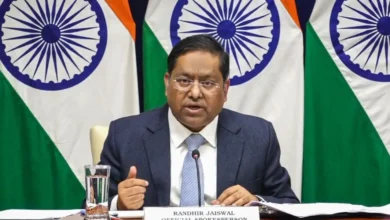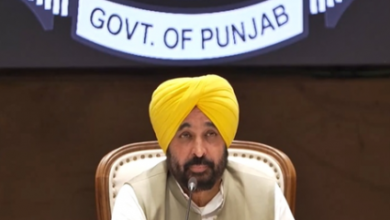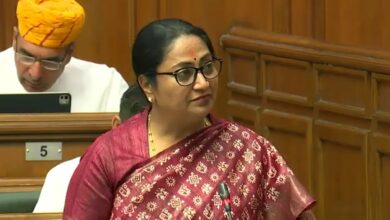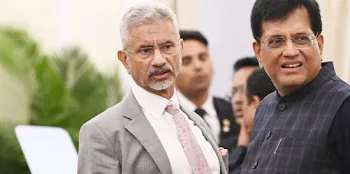Gujarat Congress chief: “Following Rahul ji’s directive, we will take action against pro-BJP leaders in the state unit based on concrete evidence.”
Shaktisinh Gohil says, "The weakness of Gujarat Congress lies in our inability to establish an organizational network in urban areas. It's not that we lack workers, but the network extending to booths and wards is missing."
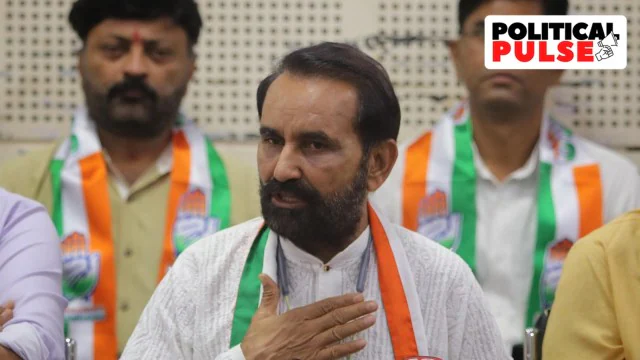
Gujarat Congress Struggles with Organizational Issues, Says Shaktisinh Gohil
In an honest analysis of the party’s failures, Gujarat Congress leader Shaktisinh Gohil has also identified a major weakness in the party—its failure to build a robust organizational hierarchy in urban India. While boasting a committed workforce, Gohil noted that the Congress has not been able to take the organization down to the ground, particularly in urban areas, where strength in booth and ward levels is the key to poll success.
The Urban Challenge
The Congress party has been one of the key political players in India for years, but since the last couple of years or so, the party has had a tough time holding on, particularly in some of the other states like Gujarat, where the Bharatiya Janata Party (BJP) has continually dominated. Gohil’s comments highlight one of the fundamental challenges for the party: an inability to organize a strong presence in urban localities. Cities are essential in today’s elections because they have a high concentration of diverse, urban dwellers who tend to be more politically engaged and active compared to their rural counterparts.

According to Gohil, the party has workers in abundance. The problem lies elsewhere: an organized network is lacking at the micro-level. Without visibility in important areas like booths and wards, the Congress is unable to mobilize voters, conduct effective campaigning, and have ongoing contact with the electorate. In places where this network does not exist, the party is unable to connect to neighborhood concerns and issues, and thus connecting with voters becomes increasingly difficult.
Booth and Ward Networks: The Missing Link
Booth and ward networks constitute the pillars of political campaigns. In India’s electoral system, constituencies are split into smaller units known as booths, where votes are being cast. Such booths tend to be the foundation of election planning, as parties and candidates strive to win many booths in order to win an election. In the same manner, wards, which are small administrative divisions of urban areas, are crucial for gauging local needs and designing focused campaigns.
Gohil’s observation implies that though the Congress can boast of numerous supporters in urban pockets, the party has been unable to efficiently mobilize its forces at this basic level. This link is missing and has hurt the party’s performance in recent elections. In the absence of a strong organizational network, the party is disadvantaged with respect to the BJP, which has succeeded in establishing a wide network of supporters at the grassroots level, enabling it to hold sway in urban as well as rural constituencies.

Striving for Change
Gohil’s comments also indicate the party’s attempt to look inward and address its organizational problems. The recognition of weaknesses is the beginning of taking corrective measures, and by identifying the lacuna in urban organizational networks, the Congress seems to be preparing for change. The party will have to concentrate on consolidating its base at the booth and ward levels to organize voters effectively, particularly in urban centers where the competition is most intense.
Perhaps one area that can be pursued to address this is the utilization of new-age technologies and digital platforms. Social media and digital platforms have given a chance to political parties to create virtual networks that can find expression in real life too. Congress can think of utilizing these platforms to reach out to voters in cities and consolidate its organizational strength at the grassroots level.
Conclusion
Shaktisinh Gohil‘s candid evaluation of Gujarat Congress’s organizational weakness is a wake-up call for the party. While elections in the state are imminent, the Congress will have to do something about its urban network deficit and work towards creating a strong, grassroots-level presence. By going to booth and ward levels, the party can consolidate its organizational base and develop a better rapport with voters, particularly in urban pockets where the fight is most intense.
It will be exciting in the coming months to note how the Congress handles this test, and if the party will reorient itself to win over urban constituencies and become an even stronger political player in Gujarat again.


